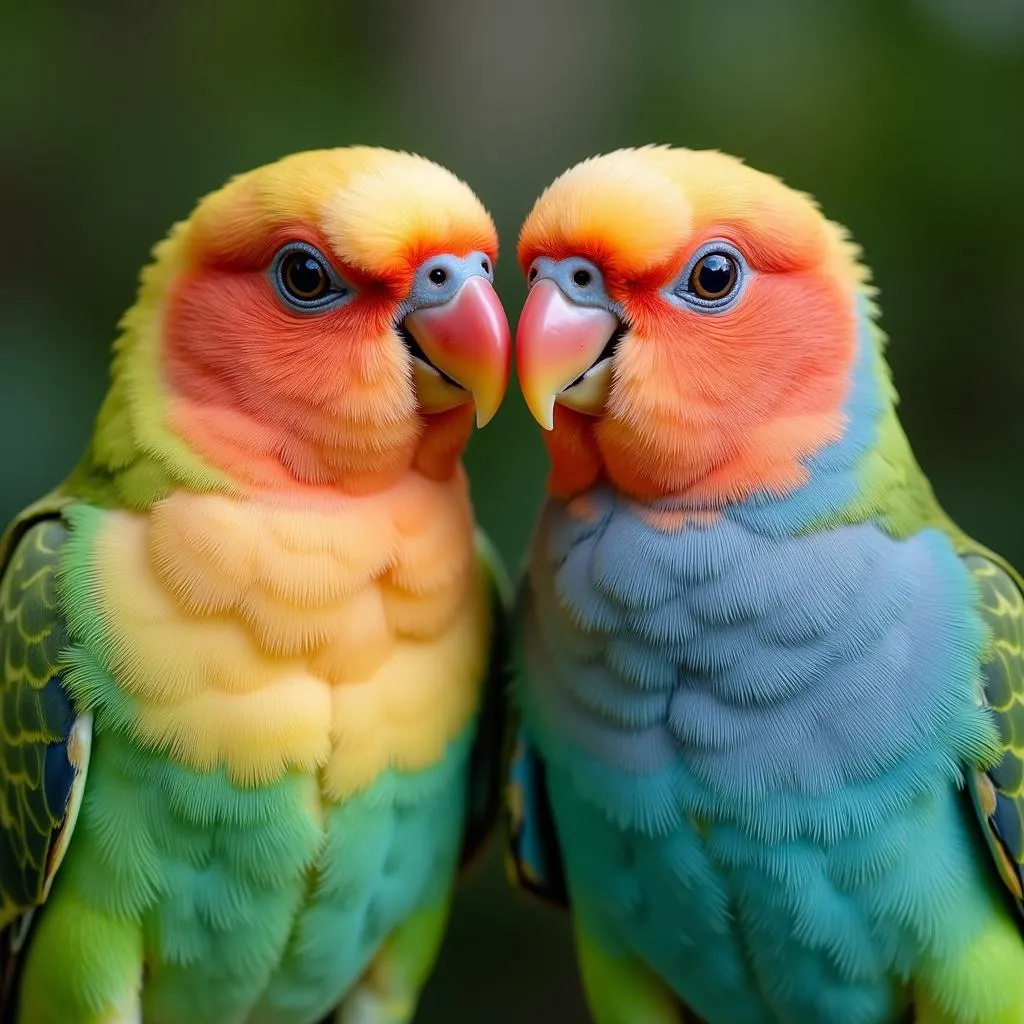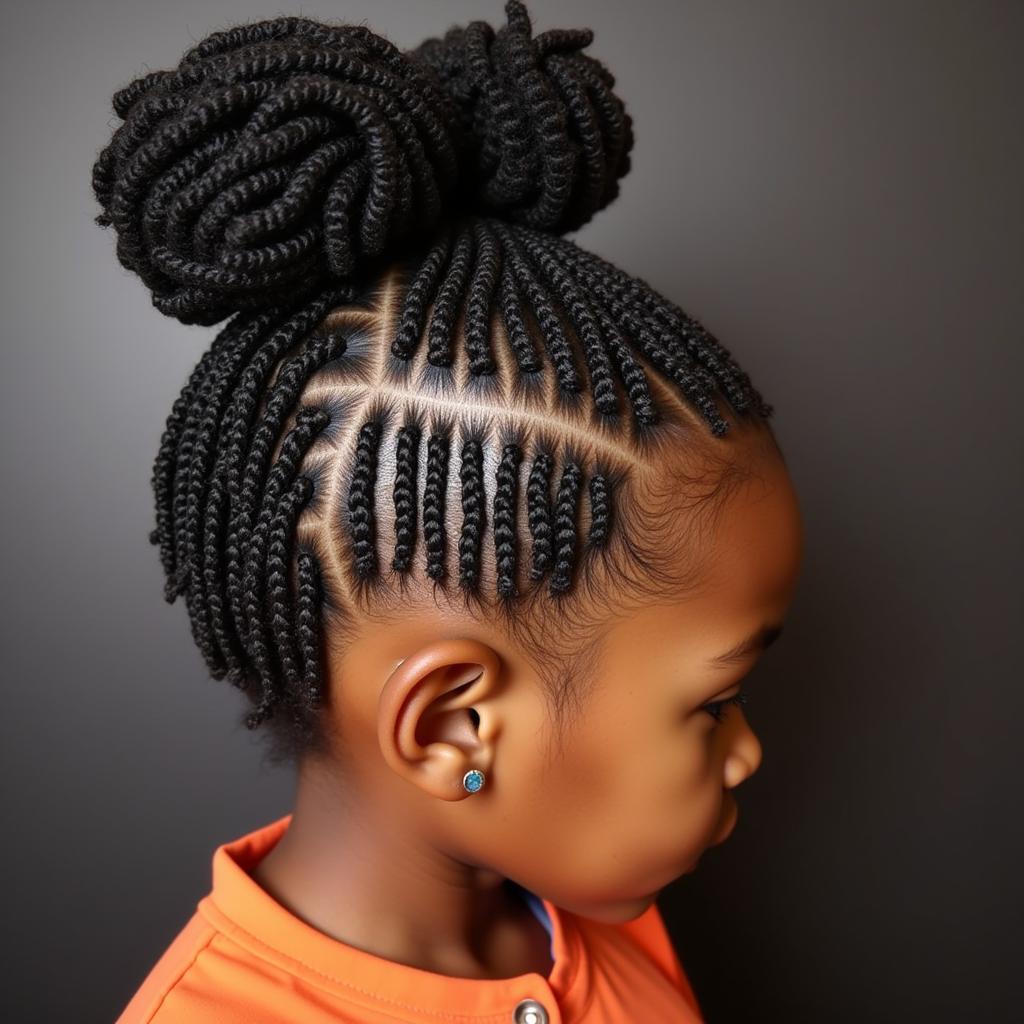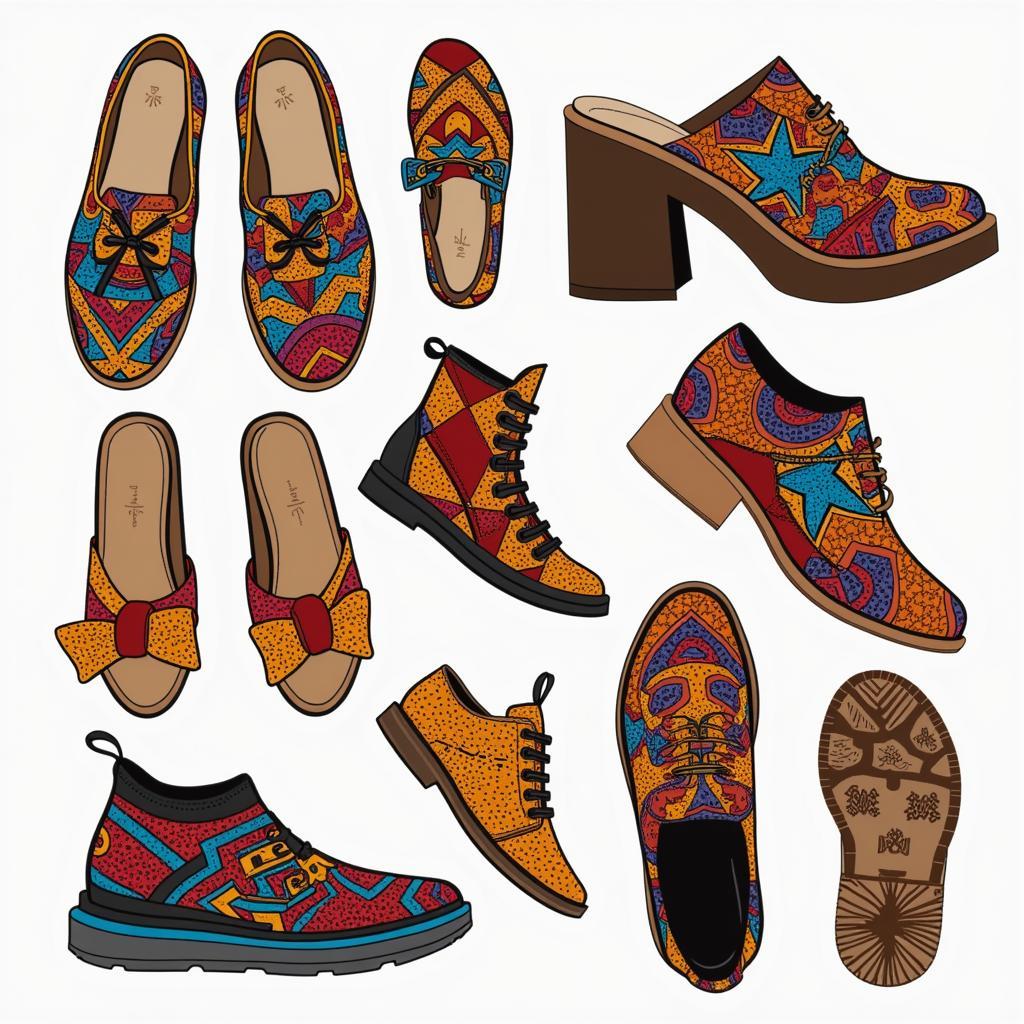Types of African Lovebirds: A Comprehensive Guide
African lovebirds are renowned worldwide for their vibrant plumage and affectionate nature. These small parrots, native to the African continent and Madagascar, captivate bird enthusiasts with their charming personalities and striking beauty. If you’re considering welcoming these feathered companions into your life, understanding the different Types Of African Lovebirds is essential.
Unraveling the Lovebird Lineage: Species and Subspecies
The term “lovebird” doesn’t denote a single species but encompasses nine distinct species within the genus Agapornis. These species are further classified into various subspecies, each with its own unique characteristics and distribution across Africa. Let’s delve into the captivating world of these avian wonders.
Popular Types of African Lovebirds
While all lovebird species share common traits like their small size and strong pair bonds, they exhibit fascinating variations in appearance, temperament, and care requirements. Here’s a closer look at some of the most sought-after types:
1. Peach-faced Lovebirds (Agapornis roseicollis)
 Peach-Faced Lovebirds
Peach-Faced Lovebirds
Hailing from southwestern Africa, Peach-faced lovebirds are among the most popular pet lovebirds. These social butterflies are known for their playful antics and striking colors. With their vivid green bodies, peachy-pink faces, and blue rumps, they’re a visual treat. Peach-faced lovebirds are relatively easy to care for, making them a great choice for first-time bird owners.
2. Masked Lovebirds (Agapornis personatus)
Masked lovebirds, originating from Tanzania, are instantly recognizable by their striking black “masks” and vibrant yellow collars. These curious and energetic birds thrive in pairs or small flocks and are known for their playful personalities.
3. Fischer’s Lovebirds (Agapornis fischeri)
Native to a small region of east-central Africa, Fischer’s lovebirds enchant with their vibrant green bodies, orange heads, and blue rumps. These social birds thrive in the company of their own kind and require ample space and enrichment to prevent boredom.
4. Black-cheeked Lovebirds (Agapornis nigrigenis)
As their name suggests, Black-cheeked lovebirds sport distinctive black markings on their cheeks. These rare and endangered lovebirds are native to a small area of southwestern Zambia and are known for their gentle nature.
5. Nyasa Lovebirds (Agapornis lilianae)
Found in parts of Tanzania, Mozambique, and Malawi, Nyasa lovebirds resemble Fischer’s lovebirds but have a distinctive orange-red coloration on their heads that extends further down their chests. They are known for their quieter personalities compared to some other lovebird species.
Factors to Consider When Choosing a Lovebird
Selecting the right type of lovebird is a significant decision. Here are key factors to ponder:
- Lifestyle and Commitment: Lovebirds are social creatures that require daily interaction, mental stimulation, and a long-term commitment.
- Space: Different lovebird species have varying space requirements. Larger species need more room to fly and explore.
- Noise Level: While generally not as loud as some parrot species, lovebirds can be vocal, especially in the morning and evening.
- Experience Level: Some lovebird species are more challenging to care for than others. Beginners might find Peach-faced lovebirds more manageable.
Creating a Loving Home for Your Lovebirds
Providing a nurturing and stimulating environment is crucial for your lovebirds’ well-being. Here are some essential considerations:
- Spacious Cage: A spacious cage with ample room for flying, climbing, and playing is paramount.
- Toys and Enrichment: Provide a variety of toys, such as swings, foraging toys, and destructible items, to keep your lovebirds mentally stimulated.
- Balanced Diet: A balanced diet consisting of high-quality pellets, fresh fruits, vegetables, and occasional healthy treats is essential.
- Social Interaction: Daily interaction and playtime are crucial. Spend quality time with your lovebirds, talking to them, playing games, and offering affection.
Frequently Asked Questions (FAQ)
1. What is the friendliest type of lovebird?
While temperament can vary between individuals, Peach-faced lovebirds are generally considered among the friendliest and most adaptable lovebird species. They are known for their playful nature and often bond closely with their human companions.
2. Do lovebirds need to be in pairs?
Yes, lovebirds thrive in pairs. They form strong bonds with their mates and rely on each other for companionship and social interaction. Keeping a single lovebird can lead to loneliness, behavioral issues, and health problems.
3. Can different types of lovebirds live together?
It’s generally not recommended to house different types of lovebirds together. While they may coexist peacefully for a time, interspecies breeding can lead to hybrid offspring with potential health or behavioral problems.
“Understanding the unique needs of each lovebird species is key to ensuring their happiness and well-being,” says Dr. Amina Kenyatta, a renowned avian veterinarian based in Nairobi, Kenya. “By providing a stimulating environment, a balanced diet, and plenty of love and attention, you can foster a strong bond with these captivating creatures.”
Conclusion
African lovebirds, with their captivating beauty and affectionate nature, bring joy to countless homes around the world. Understanding the different types of African lovebirds, their unique traits, and care requirements is crucial for anyone considering welcoming these feathered companions into their lives. By providing a loving and stimulating environment, you can share your life with these charming birds and experience the joy they bring for years to come.
Need help choosing the right lovebird for your family or have questions about lovebird care? We’re here to assist you! Contact our team at +255768904061, email us at kaka.mag@gmail.com, or visit our center in Mbarali DC Mawindi, Kangaga, Tanzania. Our dedicated team is available 24/7 to provide personalized guidance and support.
Looking for more insights into African culture and wildlife? Explore our articles on African history quotes and African cute baby quotes.


